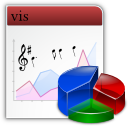Source code for vis.analyzers.indexers.over_bass
#!/usr/bin/env python
# -*- coding: utf-8 -*-
# -------------------------------------------------------------------- #
# Program Name: vis
# Program Description: Helps analyze music with computers.
#
# Filename: analyzers/indexers/over_bass.py
# Purpose: Over Bass indexer
#
# Copyright (C) 2016 Marina Borsodi-Benson, and Alexander Morgan
#
# This program is free software: you can redistribute it and/or modify
# it under the terms of the GNU Affero General Public License as
# published by the Free Software Foundation, either version 3 of the
# License, or (at your option) any later version.
#
# This program is distributed in the hope that it will be useful,
# but WITHOUT ANY WARRANTY; without even the implied warranty of
# MERCHANTABILITY or FITNESS FOR A PARTICULAR PURPOSE. See the
# GNU Affero General Public License for more details.
#
# You should have received a copy of the GNU Affero General Public
# License along with this program. If not, see
# <http://www.gnu.org/licenses/>.
# -------------------------------------------------------------------- #
"""
.. codeauthor:: Marina Borsodi-Benson <marinaborsodibenson@gmail.com>
.. codeauthor:: Alexander Morgan
"""
from vis.analyzers import indexer
import pandas
[docs]class OverBassIndexer(indexer.Indexer):
"""
Using horizontal events and vertical intervals, this finds the
intervals over the bass motion.
Call this indexer via the ``get_data()`` method of either an
``indexed_piece`` object or an ``aggregated_pieces`` object (see
examples below). The DataFrames passed in the 'score' argument
should be concatenated
:keyword 'horizontal': The horizontal voice you wish to use as a
bass. If not indicated, this is automatically assigned to the
lowest voice.
:type 'horizontal': int
:keyword 'type': The type of horizontal event you wish to index.
The default is 'notes', which should be used if you are passing
in the results of the ``NoteRestIndexer``. If you are passing in
the results of the ``HorizontalIntervalIndexer``.
:type 'type': str
**Example:**
>>> from vis.models.indexed_piece import Importer
>>> ip = Importer('path_to_piece.xml')
This example provides note names for the tracked voice (usually the
bass voice):
>>> input_dfs = [ip.get_data('noterest'),
ip.get_data('vertical_interval')]
>>> ob_setts = {'type': 'notes'}
>>> ip.get_data('over_bass', data=input_dfs, settings=ob_setts)
To use the OverBassIndexer with the melodic intervals of the tracked
voice instead, do this:
>>> input_dfs = [ip.get_data('horizontal_interval'),
ip.get_data('vertical_interval')]
>>> ob_setts = {'type': 'intervals'}
>>> ip.get_data('over_bass', data=input_dfs, settings=ob_setts)
"""
required_score_type = 'pandas.DataFrame'
possible_settings = ['horizontal', 'type']
_WRONG_HORIZ = ('horizontal setting must be a voice present in' +
' the piece')
_WRONG_TYPE = 'Type given is not found'
def __init__(self, score, settings=None):
"""
:param score: The intervals and horizontal events to be used to
find the intervals over the bass.
:type score: :class:`pandas.DataFrame`
:param settings: There are 2 possible settings but no required
settings
:type settings: dict or NoneType
:raises: :exc:`RuntimeError` if the optional setting ``type``
does not match the ``score`` input.
:raises: :exc:`RuntimeError` if the optional setting
``horizontal`` indicates a voice that does not exist
"""
self._score = pandas.concat(score, axis=1)
self._settings = {'type': 'notes'}
if (settings is not None):
self._settings.update(settings)
types = {'intervals': 'interval.HorizontalIntervalIndexer',
'notes': 'noterest.NoteRestIndexer'}
if (self._settings['type'] in types
and types[self._settings['type']] in self._score):
self.horiz_score = self._score[types[self._settings['type']]]
else:
raise RuntimeError(self._WRONG_TYPE)
if ('horizontal' not in self._settings):
self._settings['horizontal'] = len(self.horiz_score.columns) - 1
elif self._settings['horizontal'] > len(self.horiz_score.columns) - 1:
raise RuntimeError(self._WRONG_HORIZ)
self.horizontal_voice = self._settings['horizontal']
self.vert_score = self._score['interval.IntervalIndexer']
super(OverBassIndexer, self).__init__(score, None)
[docs] def run(self):
"""
Make a new index of the intervals over the bass motion.
:returns: A :class:`DataFrame` of the intervals over the bass.
:rtype: :class:`pandas.DataFrame`
"""
pairs = []
intervals = []
results = self.horiz_score[str(self.horizontal_voice)]
intervals.append(results.tolist())
for pair in list(self.vert_score.columns.values):
if str(self.horizontal_voice) in pair:
pairs.append(pair)
for pair in pairs:
intervals.append(self.vert_score[pair].tolist())
intervals = zip(*intervals)
pairs = str(self.horizontal_voice) + ' ' + ' '.join(pairs)
result = pandas.DataFrame({pairs: pandas.Series([str(intvl)
for intvl in intervals], index=self.horiz_score.index)})
return self.make_return(result.columns.values, [result[name]
for name in result.columns])
